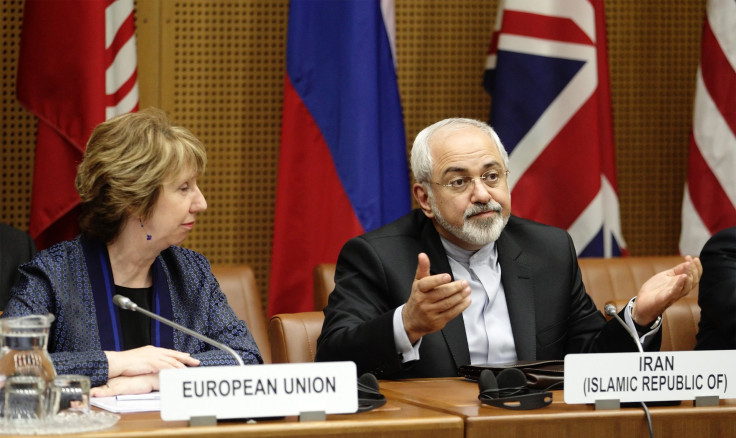Iran Sanctions: Iran Concedes To Cut Nuclear Capacity, But Agreement Still Unlikely, Western Diplomats Say

Iran has yielded a bit to demands to reduce its future nuclear program in talks with six world powers, but Western governments want it to compromise further, diplomats told Reuters Thursday.
The two-week negotiations that began Wednesday in Vienna between Iran and the "P5 + 1" (U.S., U.K., France, Germany, Russia and China) center on a decade-long disagreement over the capacity of Iran’s nuclear program. Though the parties have self-imposed a July 20 deadline for a deal, the diplomats said it won’t be easy to meet.
Iran says it has no ambitions to build an atomic bomb but needs to fuel nuclear reactors for research. The other parties say Iran doesn’t need so many centrifuges for a civilian nuclear program and don’t want to give Iran the opportunity to build nuclear weapons.
The world powers have imposed progressively stronger sanctions on Iran for nearly a decade, intending to keep them in place until it reduces its nuclear capacity to “practical” levels needed for a civilian energy program -- enough machines to power future nuclear plants and electric grids, but not enough to quickly "break out" and produce an atomic bomb.
Iran has so far refused to back down on plans to build 50,000 centrifuges. The other parties want Iran to reduce this number to a just few thousand to prove its nuclear program is only for peaceful purposes. David Albright of the Institute for Science and International Security and Olli Heinonen, former deputy director general for safeguards of the International Atomic Energy Agency, warned in a June 3 report that Iran should be allowed no more than 4,000 centrifuges.
Now behind closed doors, Iranian officials are no longer insisting on 50,000 machines, settling for less but declining to say the number, according to Reuters.
Currently, Iran has more than 19,000 centrifuges, 10,000 of them running for the past two-and-a-half years. The major oil producer has said it wants to diversify its energy supply with a network of nuclear power plants, though it has not yet built one and doing so would take many years. Iran relies on fossil fuels for 99 percent of its energy consumption, according to the U.S. Energy Information Administration.
Robert Einhorn, the U.S. State Department’s special adviser on nonproliferation and arms control until a year ago and now a senior fellow at the Brookings Institution, has said a deal remains possible but it will be tough and definitely require an extension of the talks beyond July 20.
“I think extension is inevitable, but even at the end of an extended period, it’s going to be hard to reach an agreement,” Einhorn told the Wall Street Journal’s Brussels blog on Thursday. He also said “an extension is more advantageous to the U.S. than Iran. The constraints on Iran’s nuclear program would continue, the program would remain frozen. From Iran’s perspective, it’s much more difficult.”
If Iran agreed to reduce its nuclear capacity to specified terms, sanctions would be lifted, oil production would increase, and several global companies in talks with Iran would likely seal investment deals. But if the countries don’t reach an agreement before July 20, Iran has said it will push to increase oil production anyway, potentially defying sanctions.
© Copyright IBTimes 2025. All rights reserved.






















